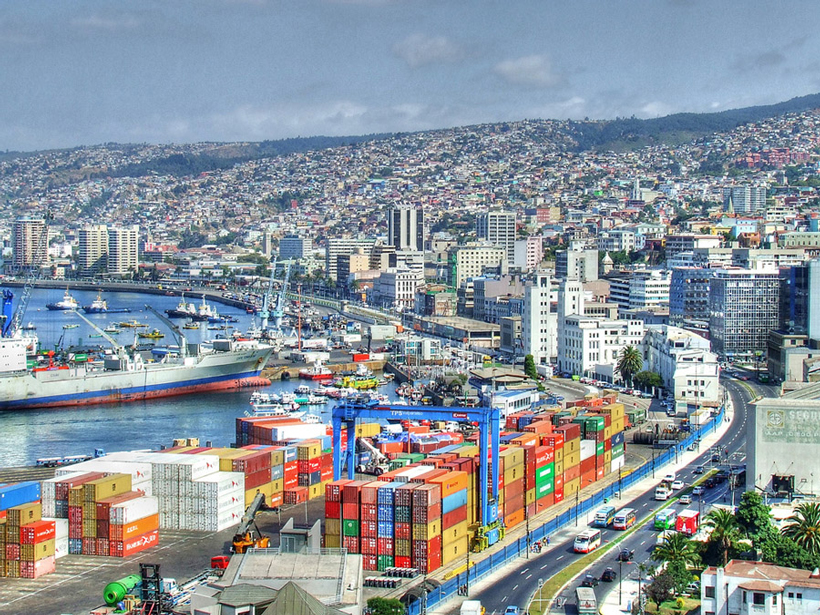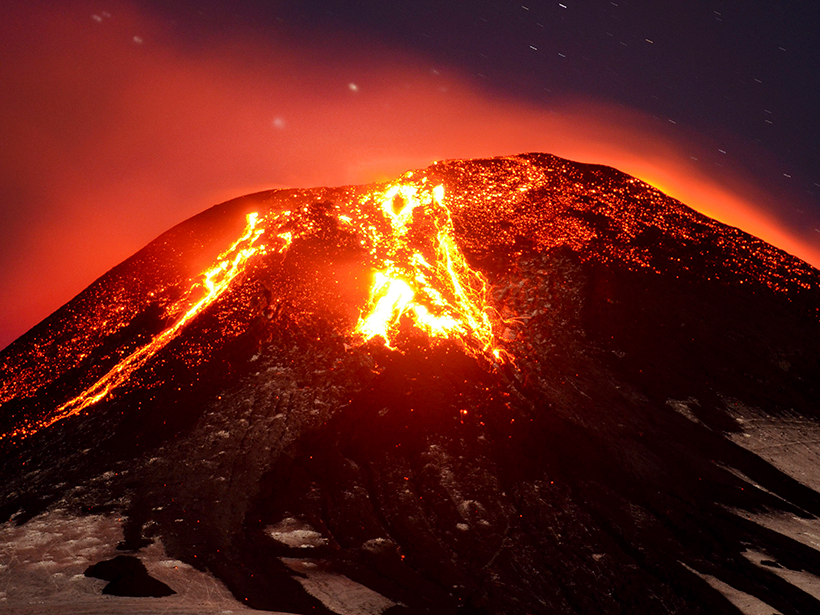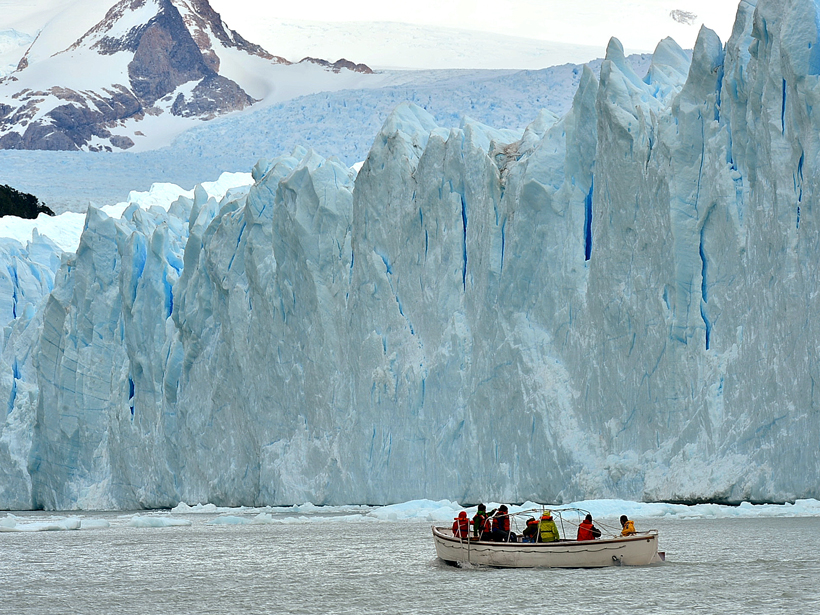Scientists studying a cyanobacterium isolated from rock samples in the Atacama Desert found out how the bacteria extract water to live. Their results may help identify likely sites for life on Mars.
Chile
Pollution Spikes in Chile Tied to Soccer Fans’ Barbecuing
In Santiago, mysterious pollution spikes—tenfold above normal levels—occur during televised soccer matches and are caused by tens of thousands of barbecues, new results reveal.
Atacama’s Past Rainfall Followed Pacific Sea Temperature
This is the first paleoclimate record of precipitation near Atacama’s hyperarid core and suggests that its moisture source is different from that of the Andes.
Atacama Desert’s Unprecedented Rains Are Lethal to Microbes
Rainfall in the driest parts of Chile’s Atacama Desert in 2017 resulted in hypersaline lagoons that killed the majority of microbes adapted to millions of years of arid conditions.
Harnessing Remote Infrasound to Study Volcanic Eruptions
Data from the 2015 eruption of Chile’s Calbuco volcano suggest the international network built to monitor nuclear explosions may also be used to detect and characterize volcanic activity.
Tsunami Records Show Increased Hazards for Chile’s Central Coast
Simulations of the historical quake raise new concerns: A similar event in the future could cause a devastating tsunami in Chile’s most populated coastal region.
Can Volcanic Gas Levels Predict an Eruption?
Researchers test whether the changing composition of volcanic gas can signal a coming eruption in Chile’s Villarrica volcano.
In Patagonian Lakes, Glacial Meltwater Lies Low
A new study reveals key differences in ice-water interactions between glaciers that flow into lakes and glaciers that end in the sea.
Observing the Ocean
How measurements from a glider deployed off the coast of Peru are contributing to a much-needed long time-series data set.
Rocks in Chile Help Scientists Hunt for Life on Mars
Investigating oxalate minerals in the Atacama Desert provides a terrestrial analogue to test techniques that could be used to study the carbon cycle in the cold deserts of Mars.










